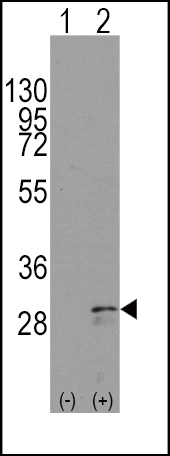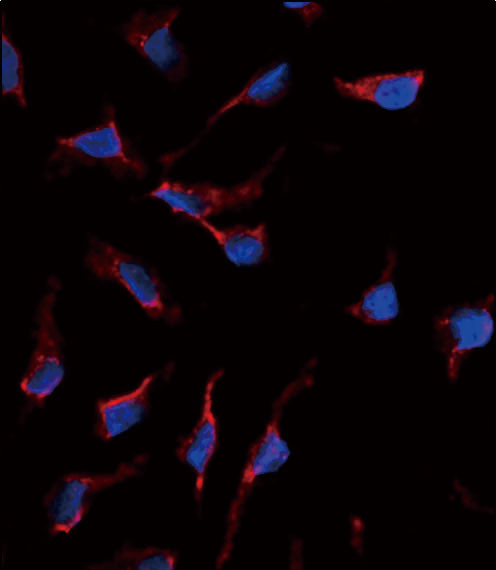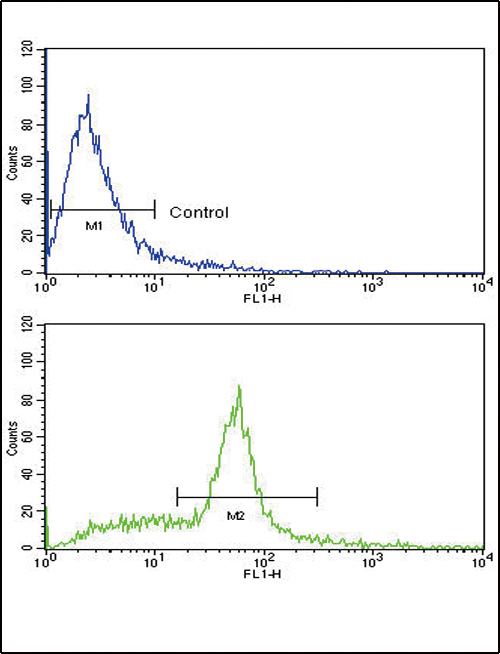



| WB | 咨询技术 | Human,Mouse,Rat |
| IF | 咨询技术 | Human,Mouse,Rat |
| IHC | 咨询技术 | Human,Mouse,Rat |
| ICC | 1/10-1/50 | Human,Mouse,Rat |
| FCM | 1/10-1/50 | Human,Mouse,Rat |
| Elisa | 咨询技术 | Human,Mouse,Rat |
| Aliases | Kit ligand, Mast cell growth factor, MGF, Stem cell factor, SCF, c-Kit ligand, Soluble KIT ligand, sKITLG, KITLG, MGF, SCF |
| Entrez GeneID | 4254 |
| WB Predicted band size | 30.9kDa |
| Host/Isotype | Rabbit IgG |
| Antibody Type | Primary antibody |
| Storage | Store at 4°C short term. Aliquot and store at -20°C long term. Avoid freeze/thaw cycles. |
| Species Reactivity | Human, Mouse, Rat |
| Immunogen | This SCF (KITLG) antibody is generated from rabbits immunized with a KLH conjugated synthetic peptide between 244-273 amino acids from the C-terminal region of human SCF (KITLG). |
| Formulation | Purified antibody in PBS with 0.05% sodium azide,1%BSA and 50% glycerol.prepared by Saturated Ammonium Sulfate (SAS) . |
+ +
Stem Cell Factor (SCF), encoded by the KITLG gene, is a critical cytokine that binds to the c-KIT receptor (a tyrosine kinase receptor). This SCF/c-KIT signaling axis plays essential roles in regulating cell survival, proliferation, and differentiation across multiple biological processes, including hematopoiesis, melanogenesis, gametogenesis, and mast cell development. Structurally, SCF exists as both membrane-bound and soluble forms, enabling autocrine, paracrine, and juxtacrine signaling. Dysregulation of this pathway is implicated in various diseases, such as cancers (e.g., gastrointestinal stromal tumors, acute myeloid leukemia), pigmentation disorders, and infertility.
SCF (KITLG) antibodies are valuable tools in research and therapeutics. They are designed to either block SGF/c-KIT interactions to study pathway mechanisms or neutralize overactive signaling in pathological conditions. For example, therapeutic anti-SCF antibodies have been explored to inhibit mast cell proliferation in allergic diseases or tumor growth in c-KIT-driven malignancies. Additionally, these antibodies serve as diagnostic reagents to detect SCF expression levels in tissues or serum, aiding in disease stratification. Both monoclonal and polyclonal SCF antibodies are utilized, with specificity tailored for applications like Western blotting, immunohistochemistry, or functional assays. Their development continues to advance precision medicine targeting the SGF/c-KIT network.
×

